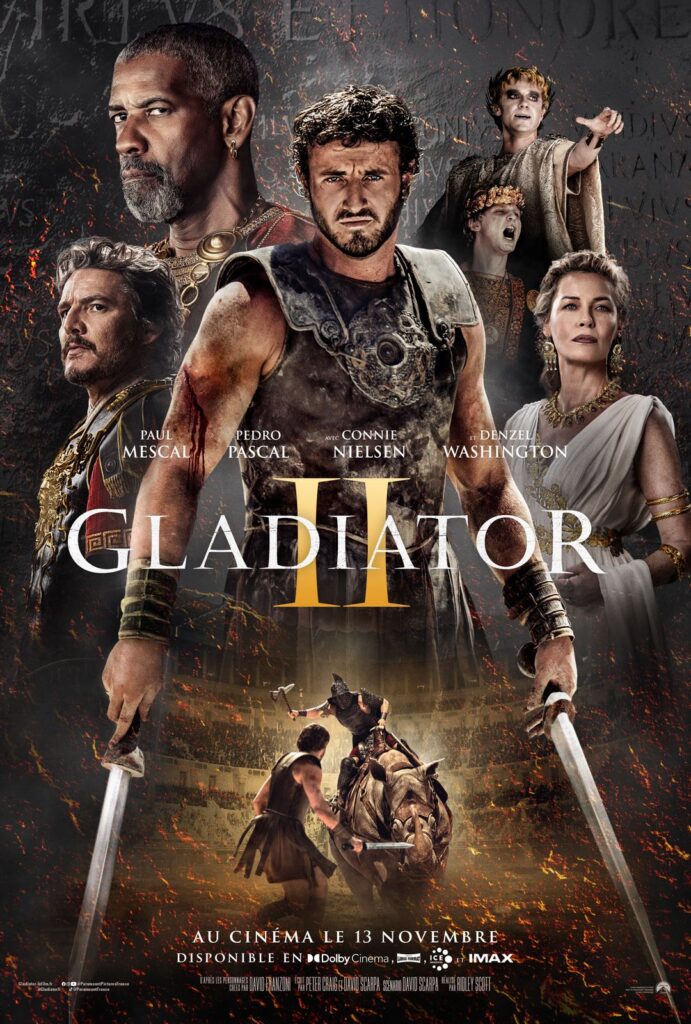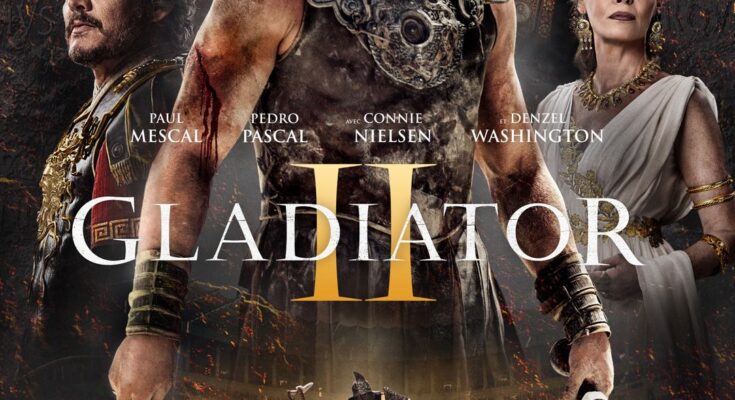Twenty-four years after the phenomenal success of the first installment, Ridley Scott returns to the territory that brought him triumph with « Gladiator II, » a grandiose historical epic hitting theaters this week.

The Return of a Legendary Saga
This highly anticipated sequel plunges us back into ancient Rome, several decades after the death of Maximus Decimus Meridius (Russell Crowe in the original film). This time, Paul Mescal takes on the lead role, portraying Lucius, Lucilla’s son, now an adult and forced to follow in the footsteps of the hero who marked his childhood.
Denzel Washington and Pedro Pascal complete a first-rate cast, bringing depth and nuance to this epic fresco. Connie Nielsen reprises her role as Lucilla, creating an emotional bridge with the first film that will delight longtime fans.
A Renewed Vision of Ancient Rome
At 86 years old, Ridley Scott demonstrates he has lost none of his visual talent. The combat scenes in the arena reach a level of spectacle rarely equaled, while maintaining palpable dramatic tension. The reconstruction of imperial Rome benefits from technological advances of recent decades, offering stunning realism that admirably serves the narrative.
The screenplay, written by David Scarpa, intelligently explores themes of legacy, power, and redemption, while offering a nuanced look at the political dynamics of the Roman Empire. The soundtrack, composed by Harry Gregson-Williams, echoes Hans Zimmer’s iconic themes while asserting its own identity.
A Successful Gamble
Creating a sequel to a film that has become cult obviously carried risks, but Ridley Scott rises to the challenge brilliantly. Without simply trying to reproduce the winning formula of the first installment, « Gladiator II » establishes itself as a work in its own right, capable of satisfying fans of the original film while appealing to a new generation of viewers.
With its 2 hours and 45 minutes runtime, this cinematic epic constitutes one of the major events of this year’s end in cinema and confirms, if proof were needed, that spectacular filmmaking maintains all its relevance in the streaming era.




